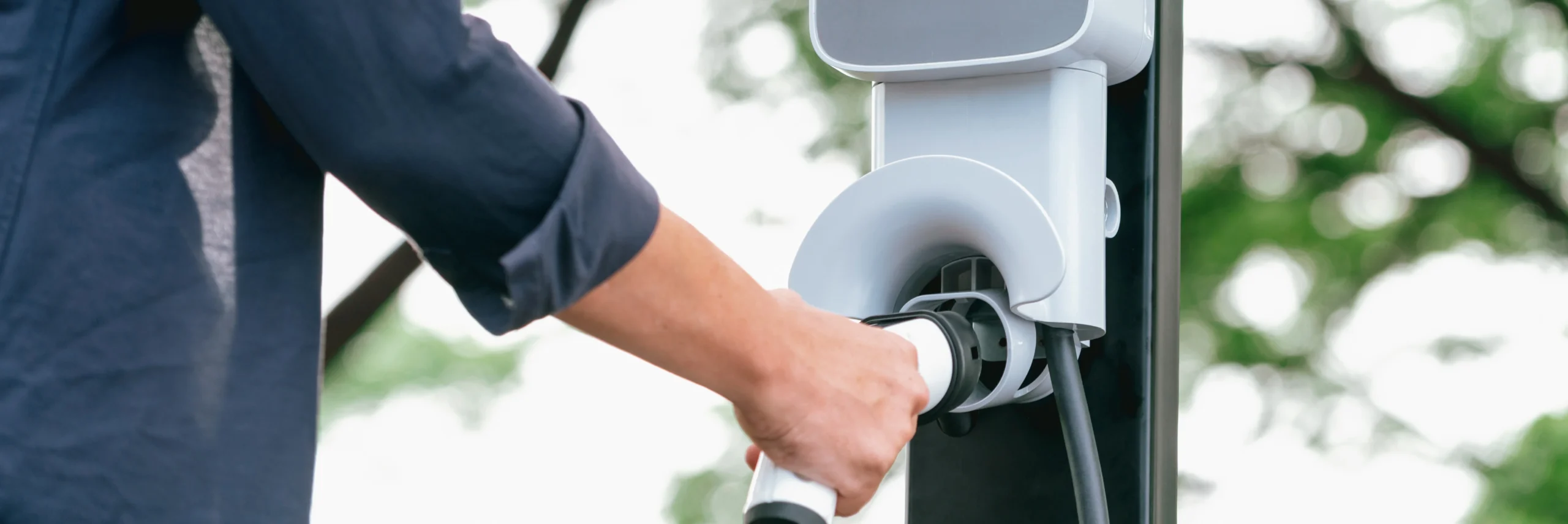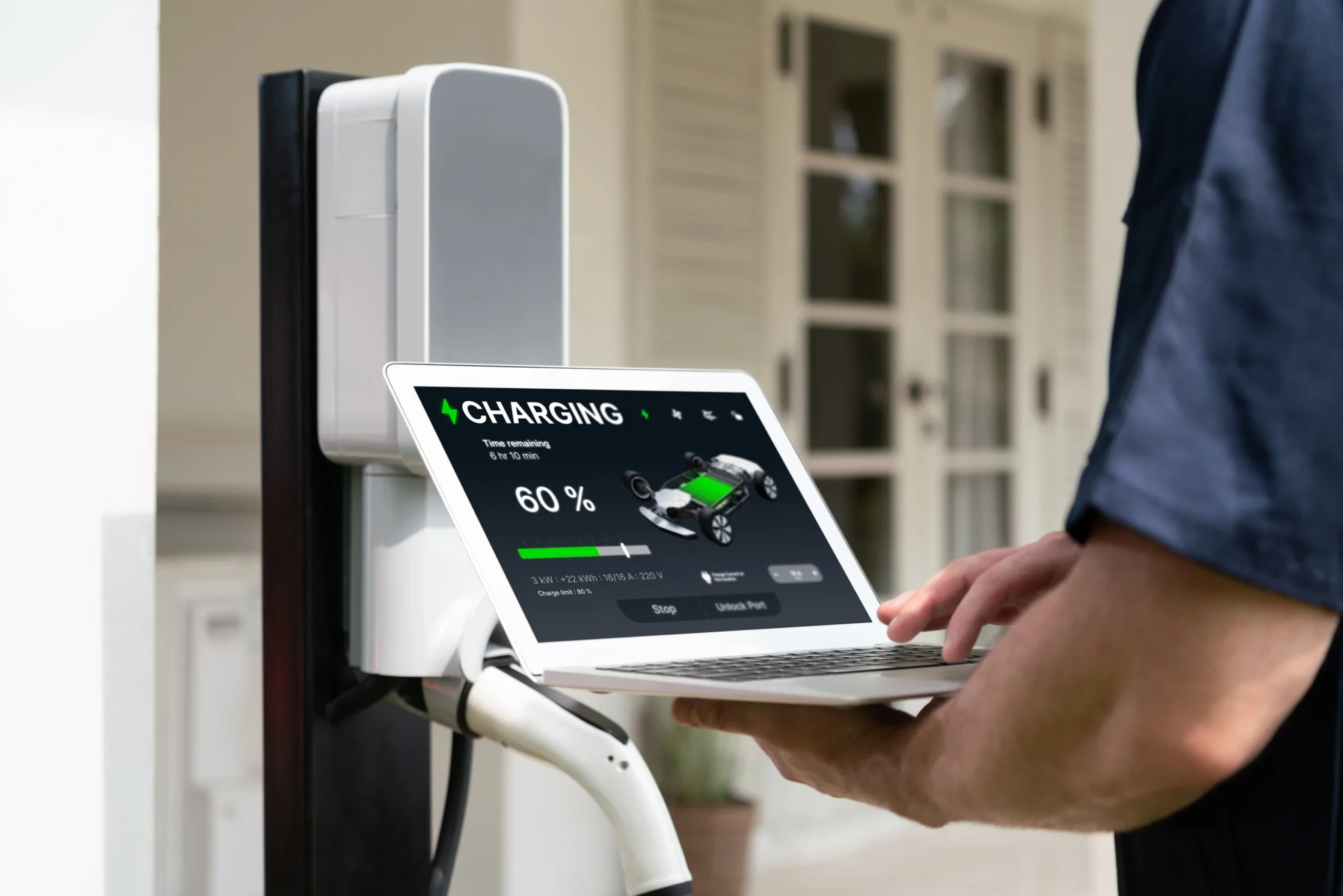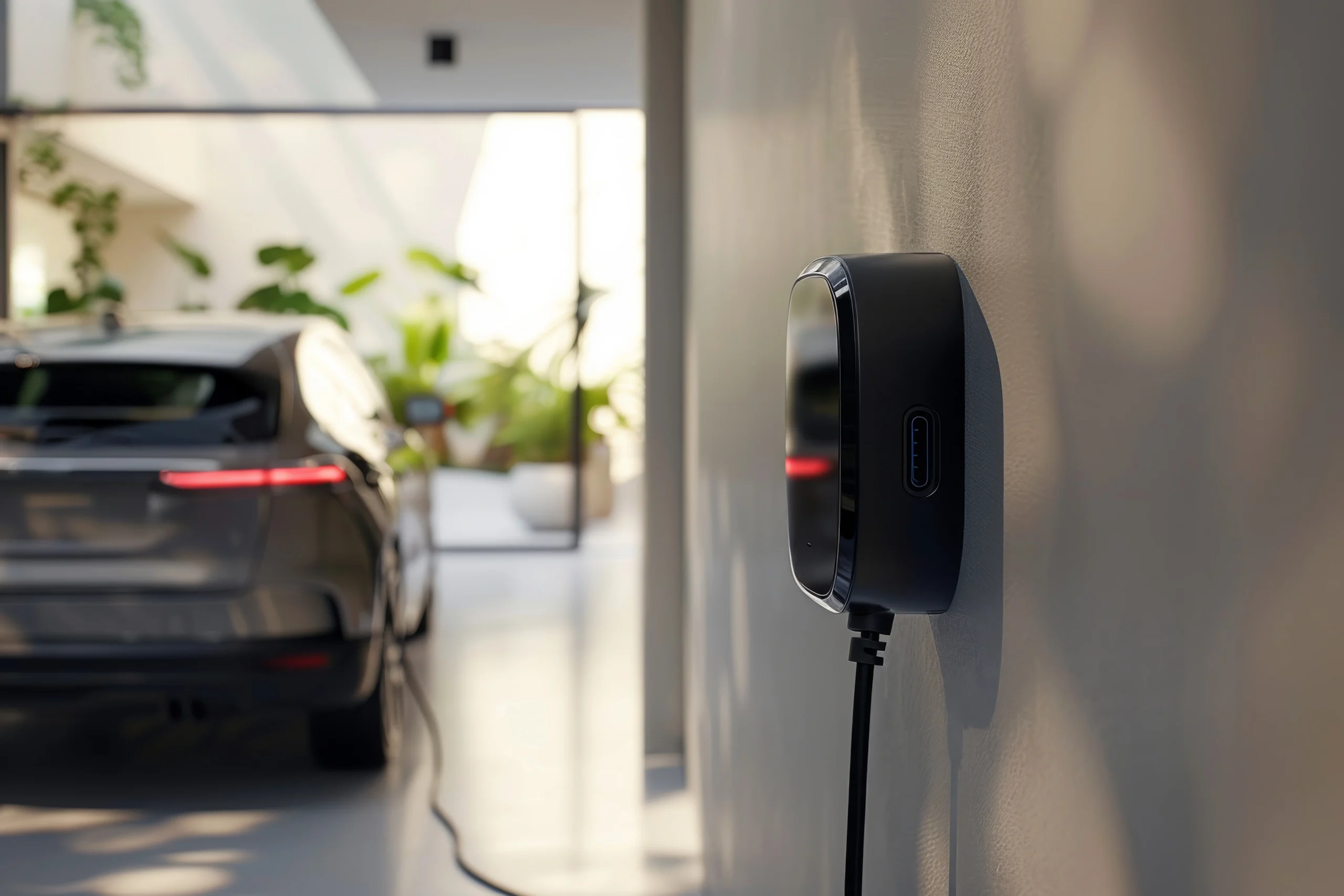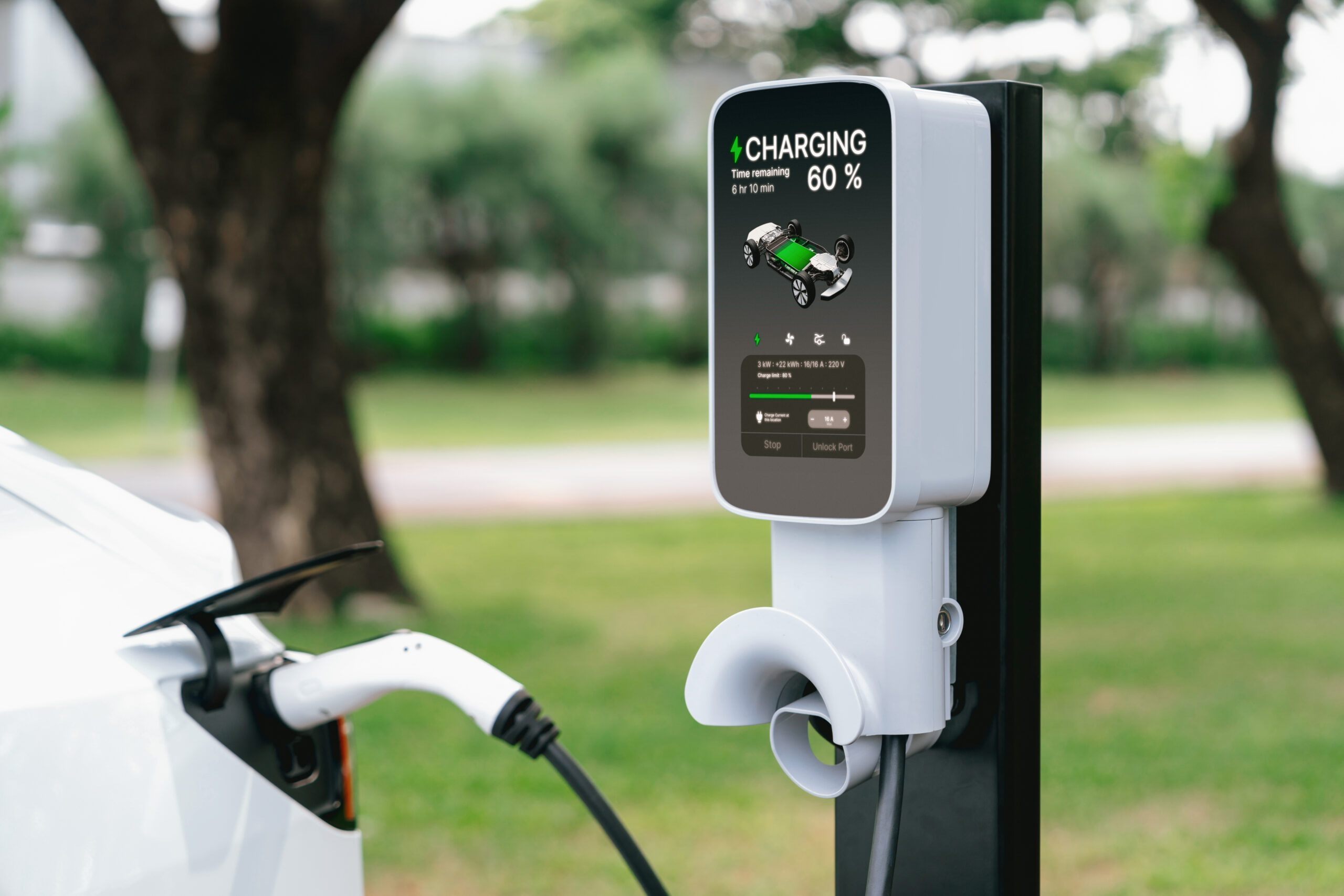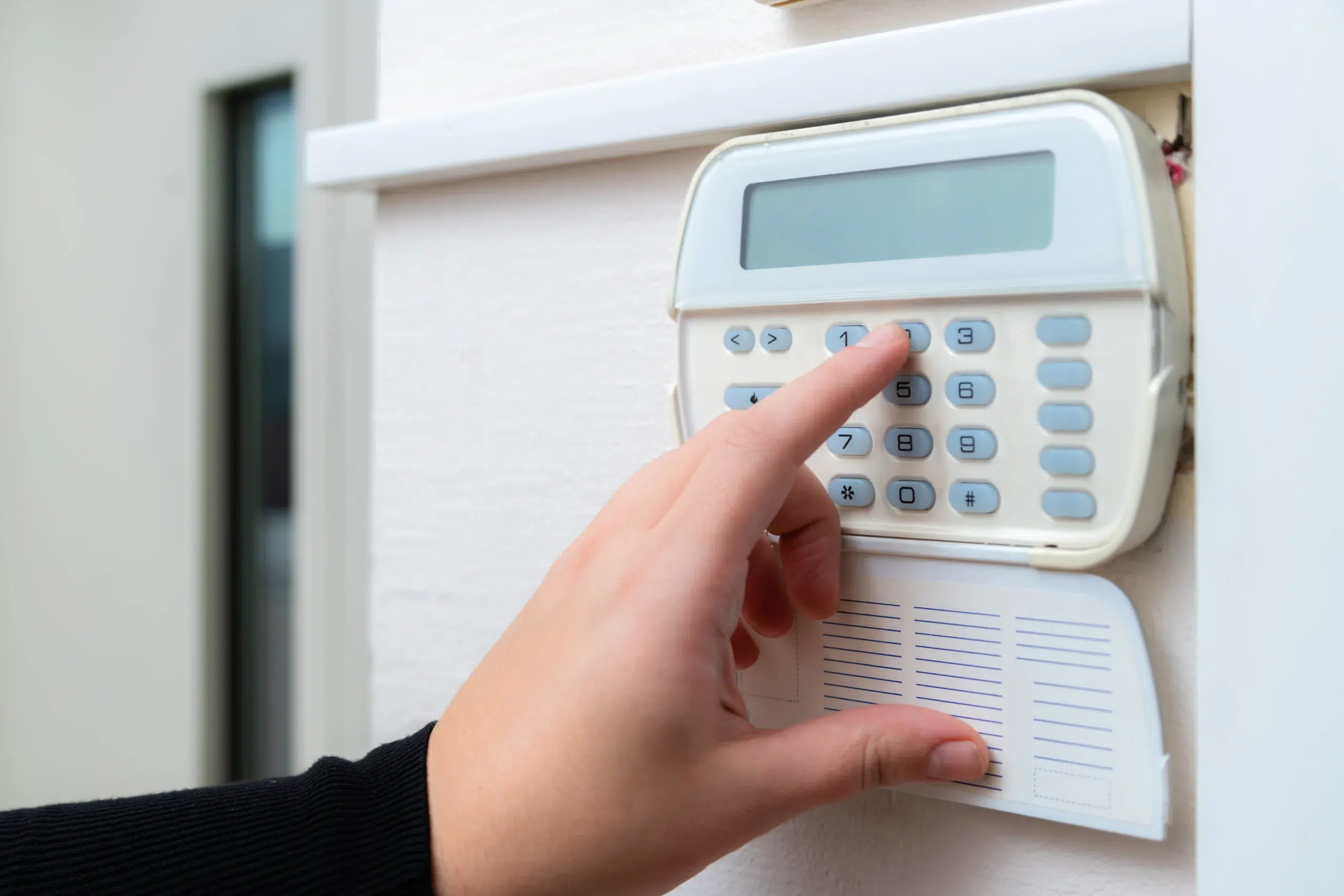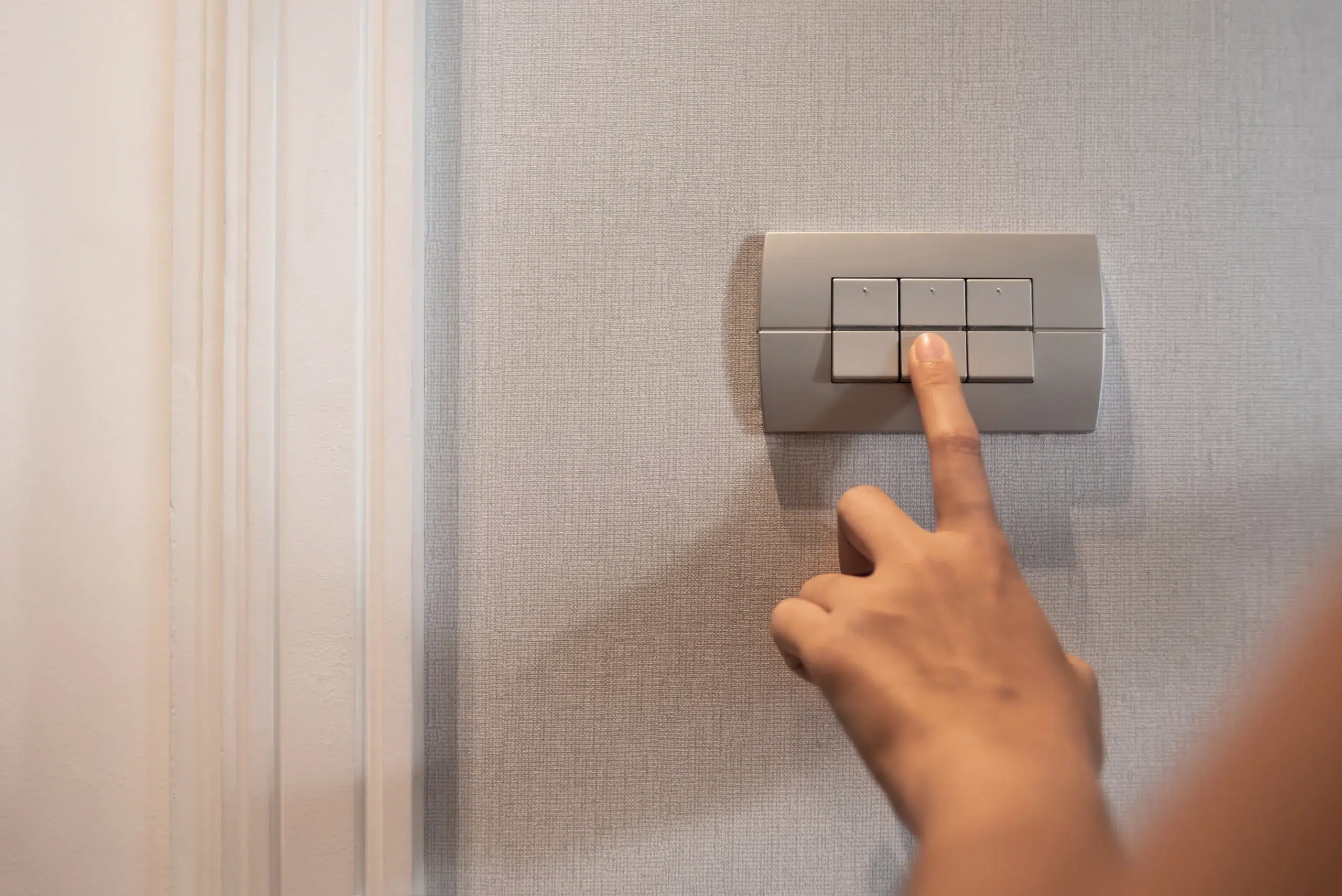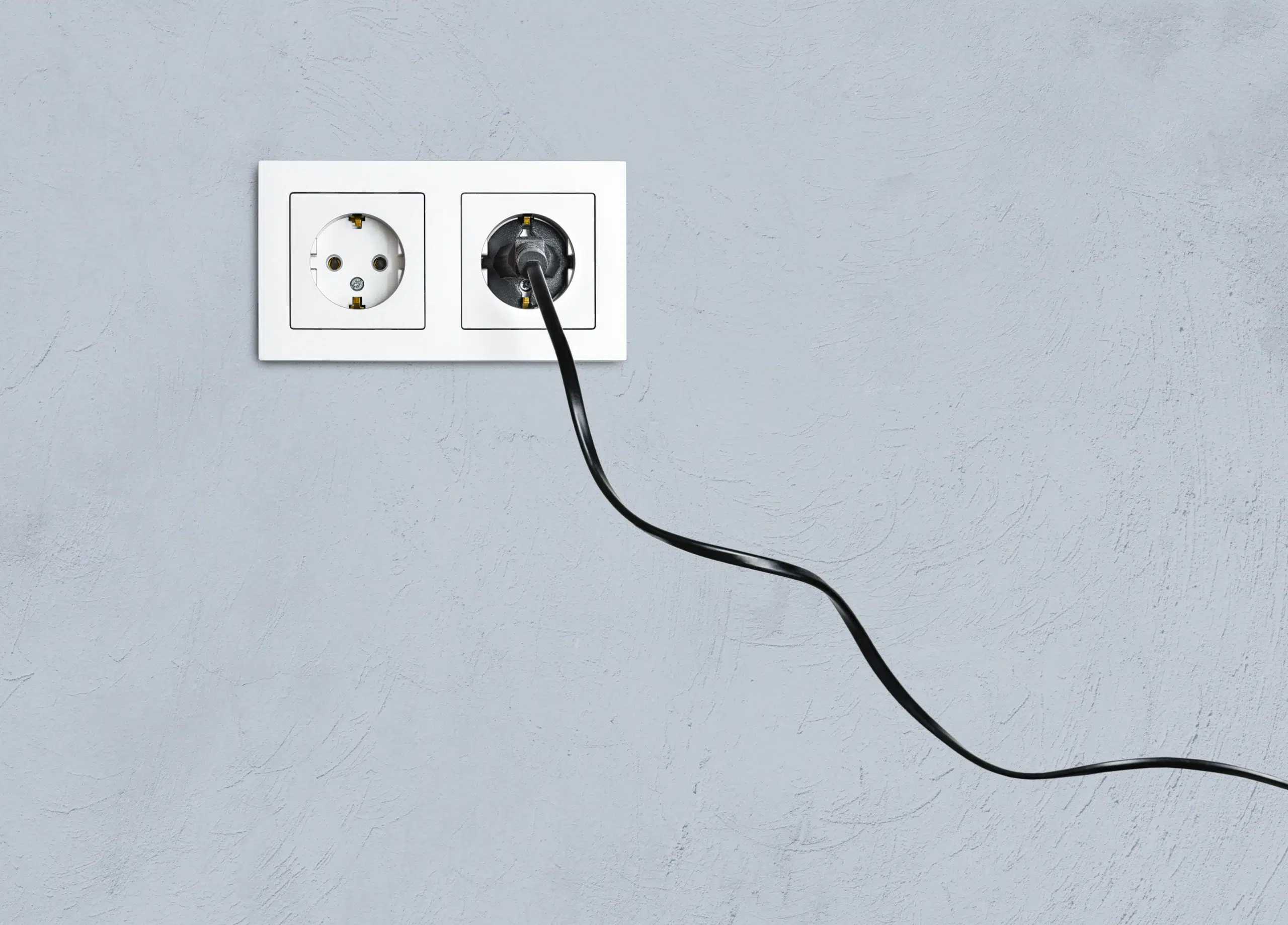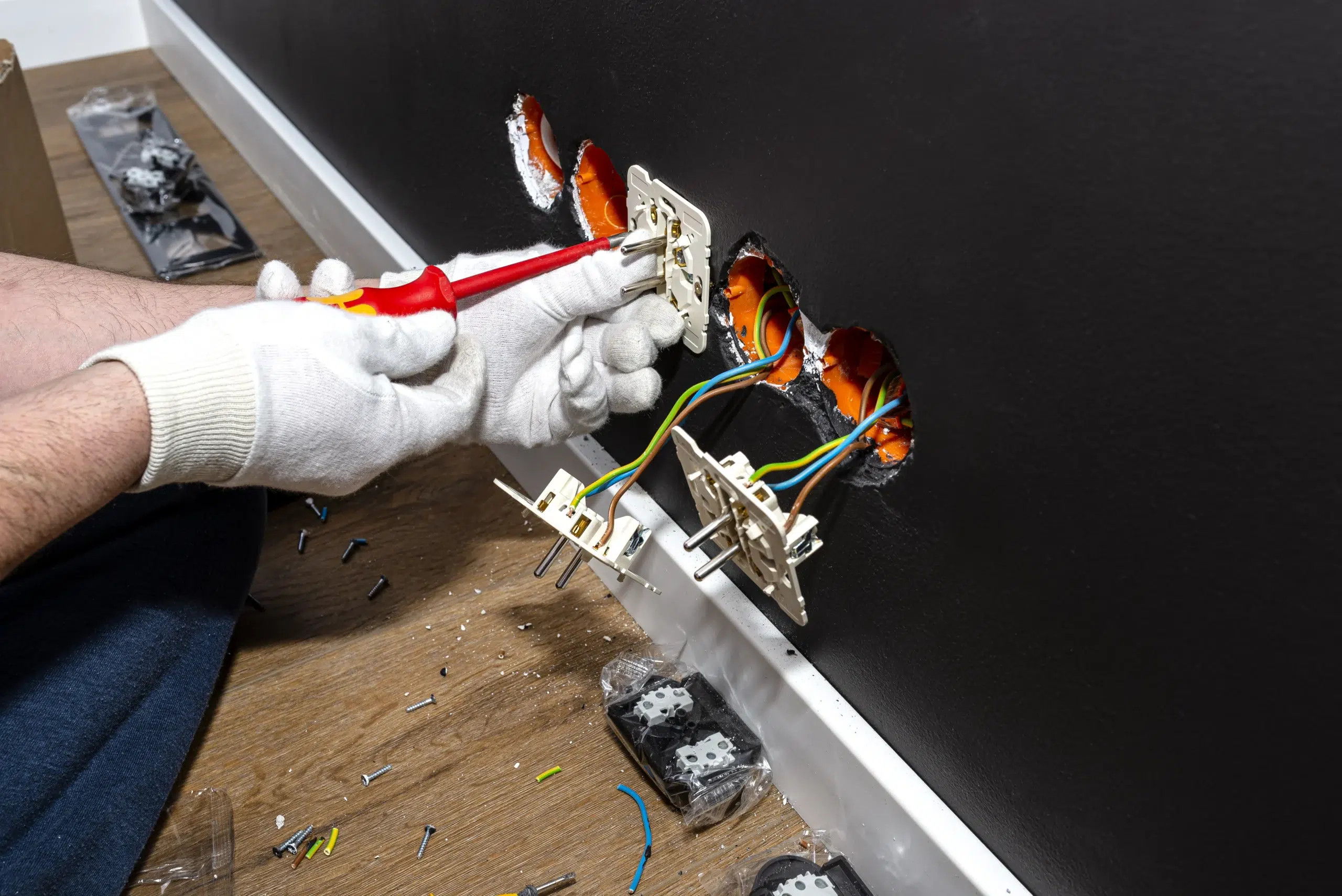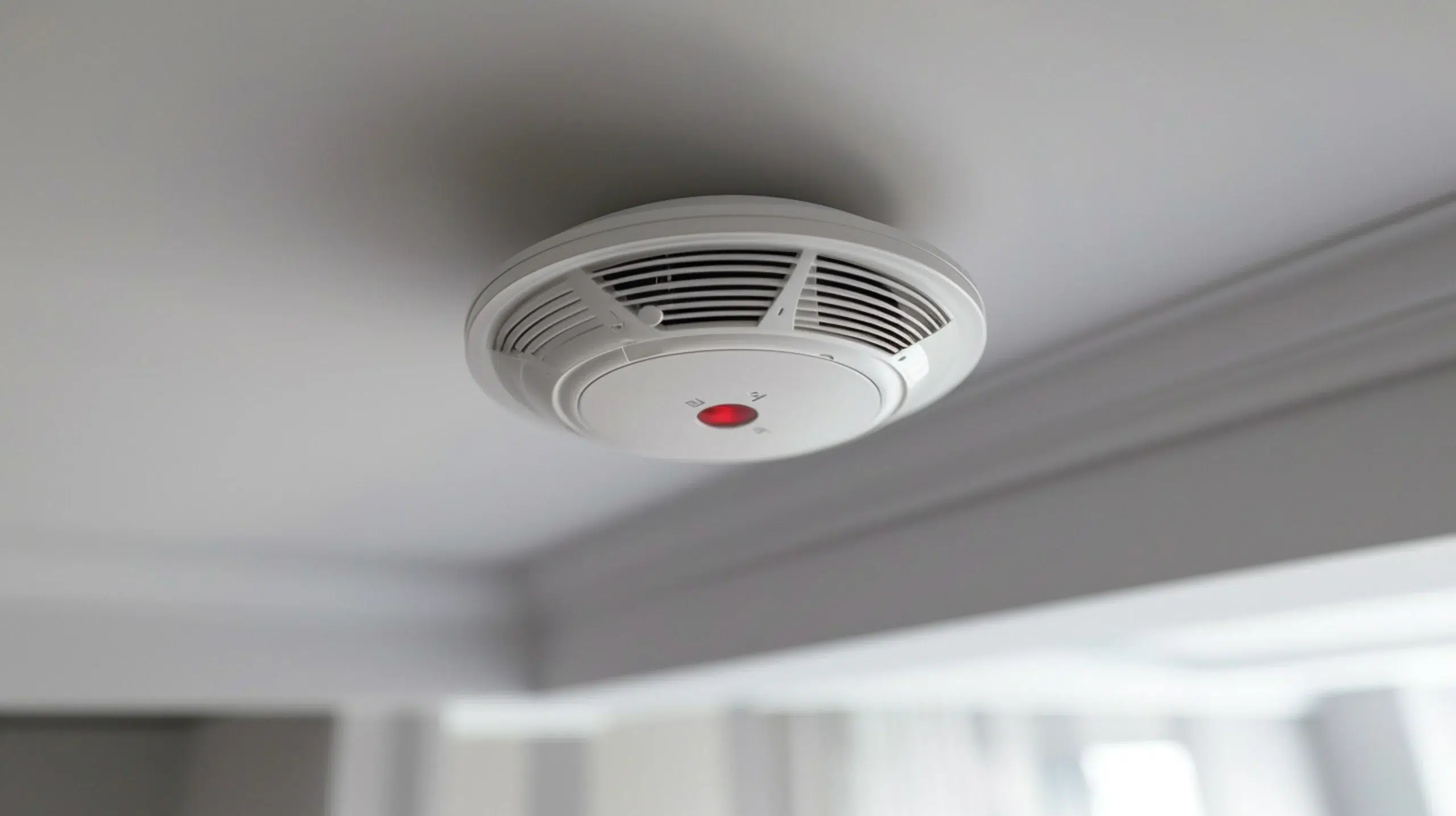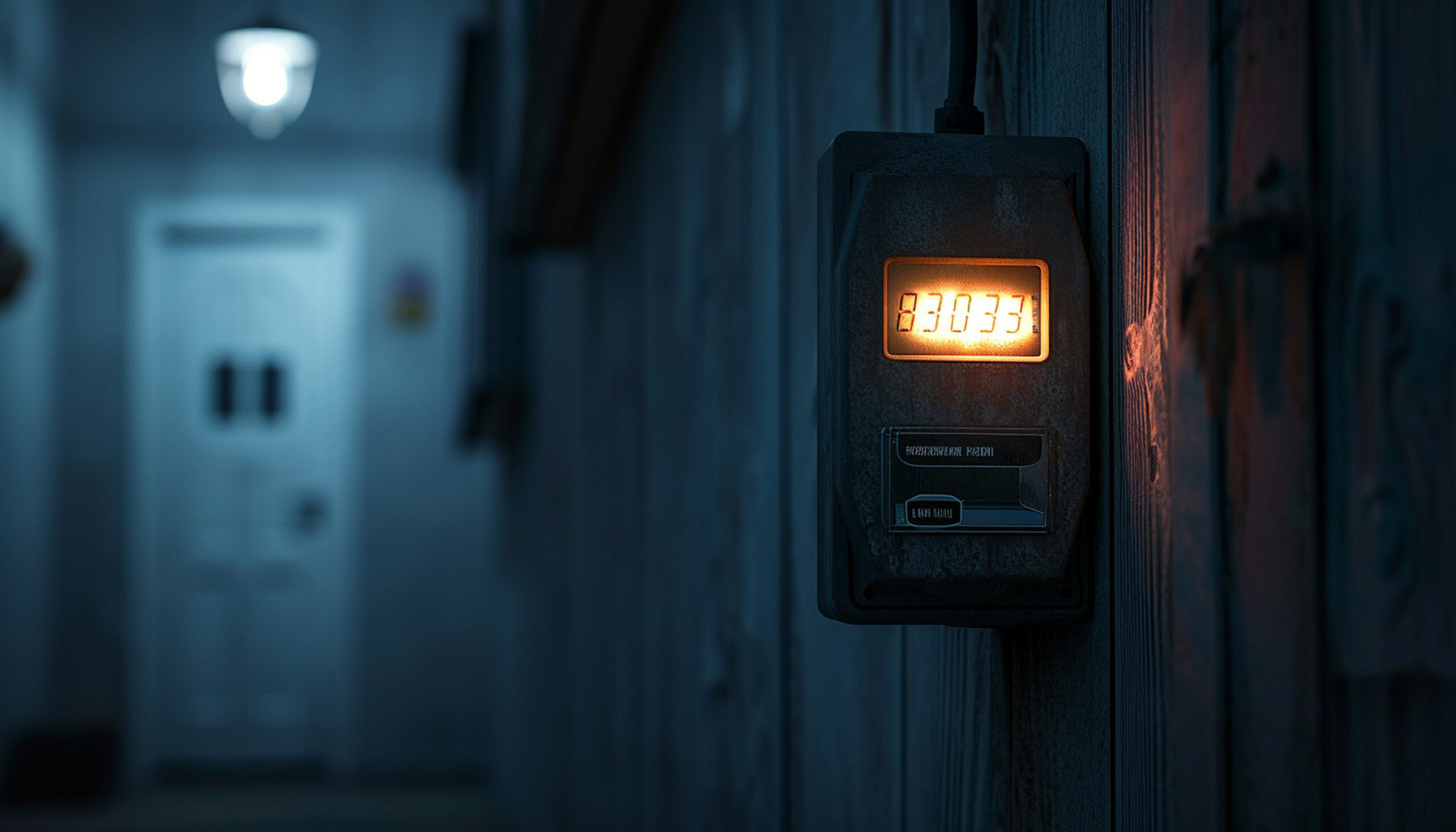The installation of smoke alarms is a vital component of a home safety system, as smoke alarms are designed to signal a fire threat early. Most homeowners, however, tend to forget about their maintenance until they start beeping at an unexpected time. When your smoke alarm begins to sound without any visible smoke, consider that something is wrong that needs to be checked.
For reliable and professional assistance in fire safety, On The Hour Service is your trusted service provider for smoke alarm installation, maintenance, and troubleshooting. With years of experience, our professional electrician will provide the best solutions to all your electrical problems and offer maximum protection.
Common Reasons Your Smoke Alarm Is Beeping With No Smoke
Low Battery
An old battery is one of the most common reasons why your smoke alarm won’t stop beeping. Various models produce a regular chirping sound, like a bird, to warn you of low battery power. This normally occurs every 30 to 60 seconds. This alert can be triggered even by battery backups, even when your alarm system is hardwired. This can be avoided by periodic battery changes, ideally once a year. To get the best performance, always use the battery recommended by the smoke detector’s manufacturer.
Dust Inside the Alarm
Dust and tiny insects may accumulate within your smoke alarm and may end up jamming its sensors or causing false alarms. This build-up can make the sensor mistakenly detect smoke in the air. Kitchens, hallways, and other frequently used rooms with ventilation are particularly prone to this issue. Dust particles can be removed by gently vacuuming the smoke alarm with a soft brush attachment or using compressed air. Make sure to turn off the power before cleaning; this will prevent accidental activation or damage to internal components.
Temperature or Humidity Fluctuations
Your smoke alarm is also likely to beep due to extreme changes in temperature or humidity. Such fluctuations typically occur in areas like bathrooms, kitchens, or attics that lack proper ventilation. Showers or cooking vapours may resemble smoke, triggering false alarms. Install the alarms in locations that are not directly exposed to vents, wind, or draughts, and ensure proper ventilation to reduce the risk of false alarms. Consider models such as photoelectric alarms, which are designed to handle environmental changes more effectively in sensitive spaces.

How to Stop a Smoke Alarm From Beeping?
Replace Batteries
The first step when your smoke alarm starts to beep is to replace the batteries. Hardwired alarms have a backup battery, which also requires periodic maintenance. Open the battery compartment, insert new batteries, and reconnect the unit. Make sure to use a durable and long-lasting battery, and test the alarm after installation. Most chirping problems can be resolved simply by replacing the smoke detector’s battery promptly, restoring its ability to detect real threats.
Clean the Unit
If new batteries don’t solve the issue, inspect the unit for signs of dust. Use a soft brush or vacuum cleaner nozzle to gently clean around the sensor and vents. Do not apply water or cleaning sprays. Dust may act like smoke particles and trigger false alarms. Keeping the unit clean enhances the sensor’s accuracy, particularly in interconnected alarms.
Reset the Alarm
After cleaning and replacing the batteries, reset the smoke alarm to clear any lingering error signals. Press and hold the test or reset button for 15–20 seconds until you hear a beep. If the unit is hardwired, you may need to turn off the power at the circuit breaker first. A reset can correct false alarms caused by memory errors or prior battery issues. Always refer to the manufacturer’s guide for model-specific instructions.
Check Wiring
In hardwired smoke detectors, false beeping may result from faulty or loose wiring. If the hardwired alarm continues to chirp despite battery replacement and cleaning, inspect the wiring connections. Turn off the circuit breaker before opening the unit. Look for frayed wires, corrosion, or poor connections. If you are not confident performing electrical work, it’s advisable to contact a licensed electrician. Proper wiring ensures that the alarm functions correctly and doesn’t go off unexpectedly.
Replace the Unit if Expired
Smoke alarms have a limited lifespan of 8–10 years. An expired unit may beep randomly or fail to detect smoke effectively. Check the manufacture date on the back of the alarm. If it has reached the end of its service life, replace it. New alarms typically have built-in time-out warnings. Regular upgrading ensures improved technology, enhanced sensitivity, and compliance with current safety standards.
How Often Should You Replace or Maintain Your Smoke Alarm?
- Test Monthly: Press the test button on your smoke alarm once a month to ensure it is functioning correctly. This simple check confirms the battery’s condition and the alarm’s responsiveness.
- Replace Batteries Annually: Don’t wait for the alarm to beep—replace the batteries once a year. Fresh batteries help ensure your smoke alarm functions effectively when it matters most.
- Clean Every 6 Months: Use a vacuum or soft brush to remove dust every six months. Dust and dirt can obscure the sensors, triggering false alarms or preventing a proper response to smoke.
- Replace Every 8–10 Years: Smoke alarms degrade over time and lose sensitivity. Replace the unit after 8 to 10 years to ensure ongoing protection for your home and family.
- Check the Manufacturer’s Guidelines: Follow the maintenance and replacement schedule outlined by the manufacturer to keep your alarm performing at its best.
Conclusion
The beeping of a smoke alarm without any obvious cause doesn’t always mean there’s an immediate danger, but it should never be ignored. Smoke detectors are engineered to give early warnings of potential fire hazards by detecting smoke or related emissions. Identifying whether the issue is a low battery, an environmental factor, or an ageing unit will save you money and help you avoid unnecessary stress. Reliable operation is achieved through regular maintenance, timely replacements, and a clean, well-functioning device. If you’ve tried all troubleshooting steps and the beeping persists, consult a licensed electrician in Newcastle for a proper diagnosis and solution.
FAQ's
Why does my smoke alarm beep randomly at night?
Random beeping at night is often due to a low battery. Battery voltage can drop further in cooler temperatures, causing the alarm to chirp to indicate the need for a replacement.
How do I stop my smoke alarm from beeping without smoke?
To stop the beeping, try replacing the batteries, cleaning the unit, or performing a reset. If it continues, check the wiring or consider replacing the unit if it’s reached the end of its lifespan.
Can a smoke detector beep due to high humidity or heat?
Yes, high humidity or sudden temperature increases can mimic smoke and cause false alarms. Vapours from cooking or showers may trigger the sensor. Install alarms in well-ventilated areas away from such sources.
How do I reset a hardwired smoke alarm?
Turn off the circuit breaker, press and hold the reset button until the flashing stops, then restore power. This clears any error codes or memory issues.
Why is my smoke detector still beeping after I changed the battery?
If the beeping continues, there may be residual error signals, dust build-up, or wiring issues. Clean and reset the unit, check the battery compartment, and inspect for faulty connections.
93 Exley Road Wedderburn NSW 2560 Campbelltown & South West Sydney
Why Installing Your Own EV Charger Could Void Your Car’s Warranty and Insurance
Why Installing Your Own EV Charger Could Void Your Car’s Warranty and Insurance Category: The...
Read MoreThe Hidden Damage Rodent Cause to Electrical Wiring and Insulation
What Does a Pre-Installation EV Charger Inspection Entail? Category: Installing an EV charger at your...
Read MoreThinking of Installing an EV Charger in Your Apartment or Shared Parking Area? Here’s What You Need to Know
Thinking of installing an EV charger in your apartment or shared parking area? Here’s what...
Read MoreIs It Safe to Install an EV Charger Outdoors in Sydney’s Weather Conditions?
How to Choose the Right Gate Intercom for Your Property Category: The increased availability of...
Read MoreHow to Choose the Right Gate Intercom for Your Property
How to Choose the Right Gate Intercom for Your Property Category: Selecting the appropriate gate...
Read MoreThe Light Switch Feels Warm or Smells Burnt — What Should I Do?
The Light Switch Feels Warm or Smells Burnt — What Should I Do? Category: Light...
Read MoreWhy Do I Get a Small Electric Shock from My Appliances?
Why Do I Get a Small Electric Shock from My Appliances? Category: Small electric shocks...
Read MoreElectrical Surges Damaging Your Appliances? Here’s What You Can Do
Electrical Surges Damaging Your Appliances? Here’s What You Can Do Category: An electrical surge refers...
Read MoreWhat are the types of smoke Alarms and How Does It Work?
What are the types of smoke Alarms and How Does It Work? Category: A smoke...
Read MorePower Outage in Just One Room? Here’s What Could Be Causing It
Power Outage in Just One Room? Here’s What Could Be Causing It Category: Experiencing a...
Read More
